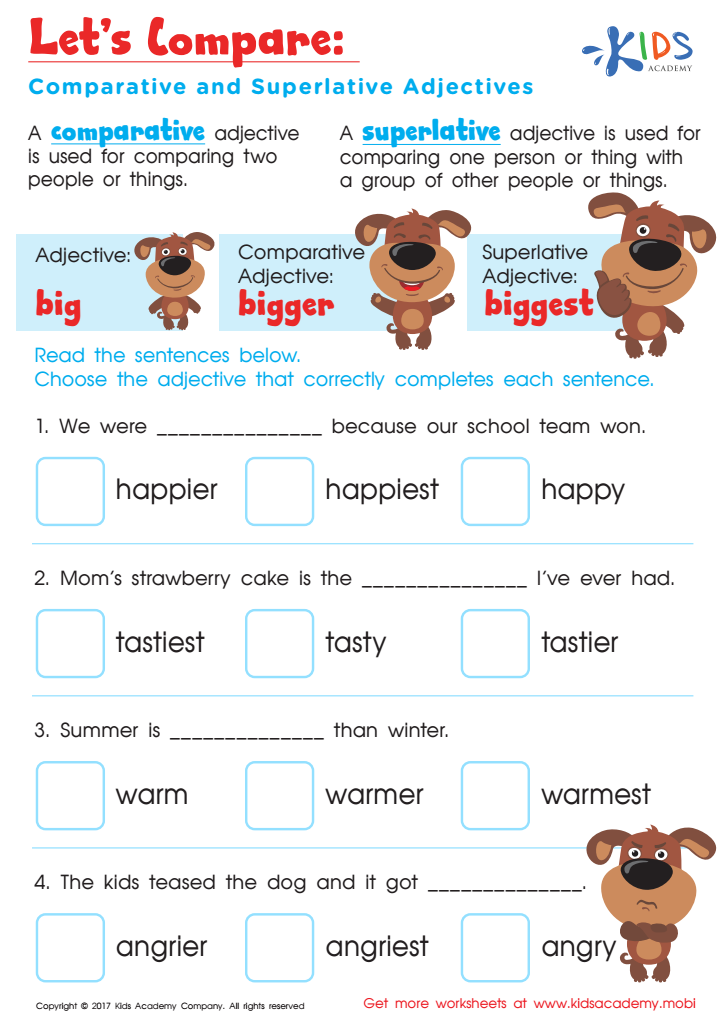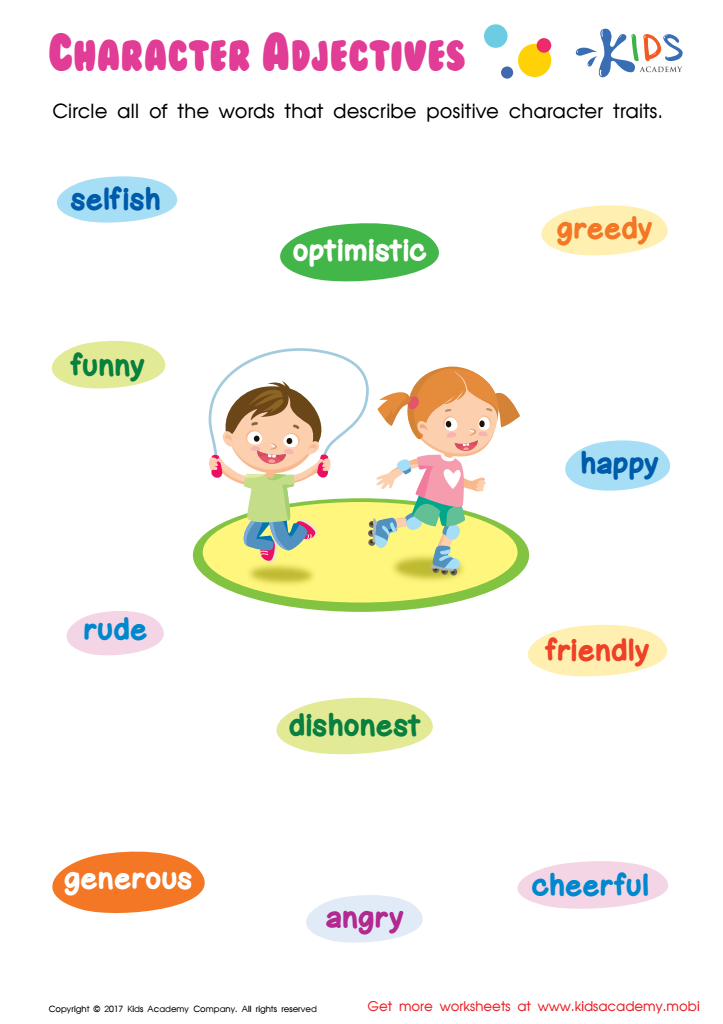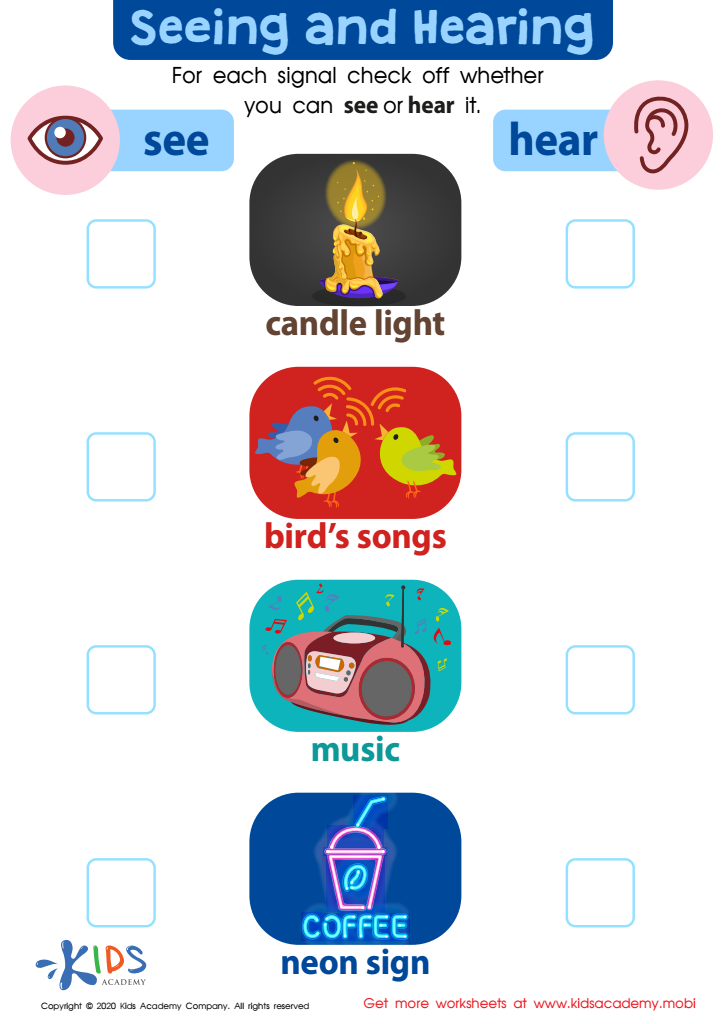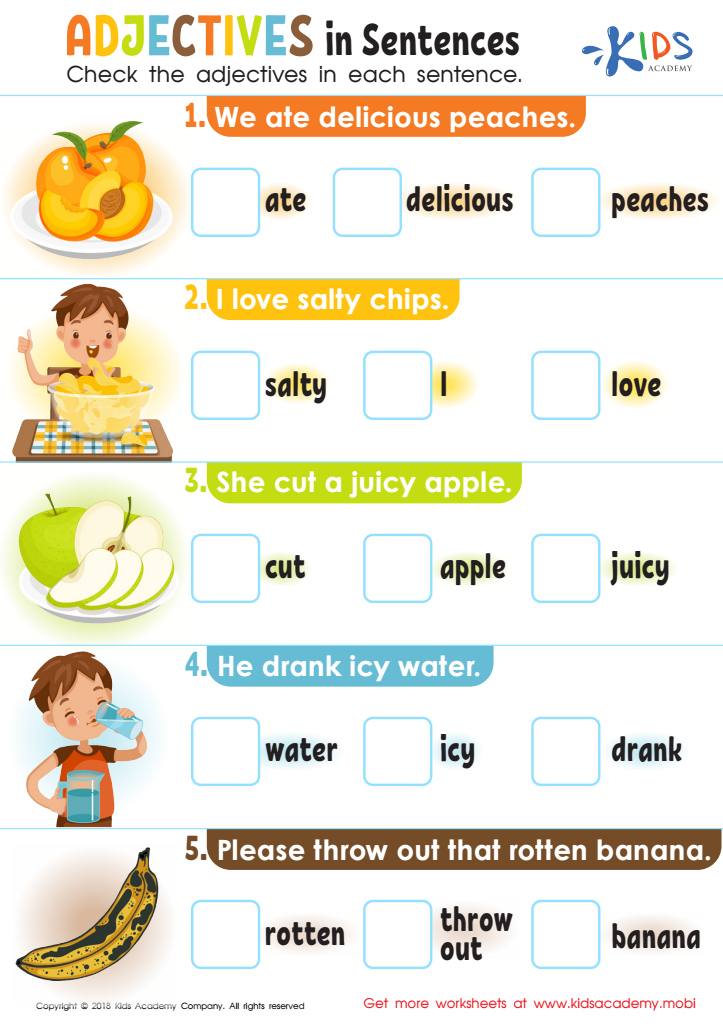Understanding adjectives Normal Worksheets for Ages 3-9
5 filtered results
-
From - To
"Understanding Adjectives Normal Worksheets for Ages 3-9" helps young learners master descriptive language through vibrant, fun activities. These worksheets introduce children to the world of adjectives, enhancing their vocabulary and language skills. Designed for ages 3-9, each sheet seamlessly blends education with entertainment, making learning engaging and enjoyable. Our expertly crafted resources focus on improving reading comprehension and writing abilities by teaching how to recognize and use adjectives effectively. Give your child the linguistic tools they need to describe the world around them more vividly with our comprehensive, age-appropriate worksheets. Discover a new way of learning adjectives today!


Comparative and Superlative Worksheet


Character Adjectives Worksheet


Adjectives Worksheet


Seeing and Hearing Worksheet


Adjectives in Sentences Worksheet
Understanding adjectives is important for children ages 3-9 as it plays a vital role in their language development and comprehension skills. Adjectives help describe and add detail to nouns, thereby enriching a child's vocabulary and fostering clearer communication. At this age, children are rapidly expanding their language skills, and the ability to use adjectives appropriately enhances their ability to express themselves more vividly and accurately.
For parents and teachers, facilitating the understanding of adjectives can significantly aid in children's literacy and cognitive development. Adjectives not only allow children to describe their world more effectively but also aid in their essential reading and writing skills. For instance, a story enriched with adjectives becomes more engaging and easier for a child to visualize.
Additionally, being proficient with adjectives supports better social interactions. Children learn to describe their feelings, experiences, and observations more precisely, which enhances peer communication and emotional intelligence.
In an educational context, teachers can introduce a variety of activities, such as descriptive games, storytelling, and interactive reading, to help children practice using adjectives. Parents can reinforce this by encouraging descriptive language at home. Overall, mastering adjectives equips children with a richer, more precise vocabulary, laying a strong foundation for future academic success and effective communication.

 Assign to My Students
Assign to My Students






















